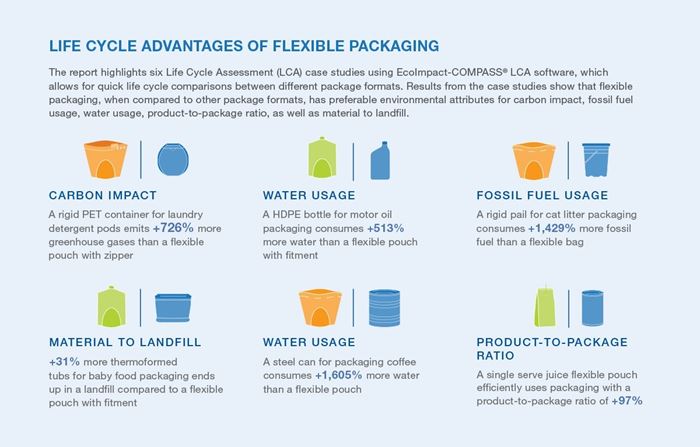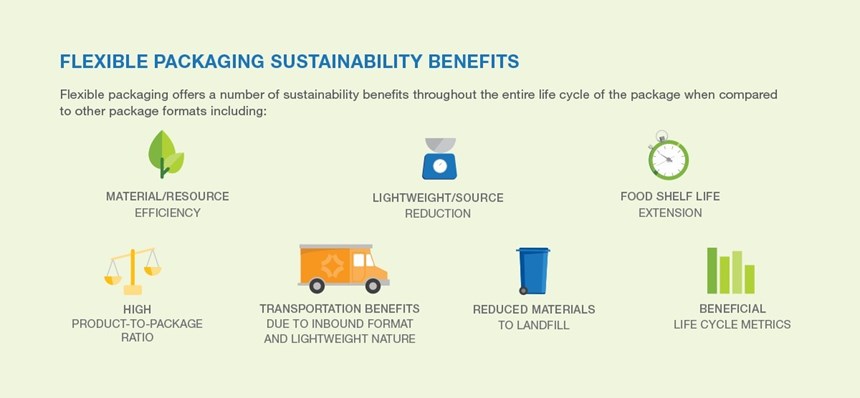Highly-Visual Fact Sheet Shows the Life Cycle Advantages of Flexible Packaging
Based on its recent study, the Flexible Packaging Association’s fact sheet details the environmental attributes of six different flexible packaging formats.
The Flexible Packaging Association (FPA) has developed a highly-visual fact sheet on the life cycle advantages of flexible packaging. The fact sheet is based on the recent report “A Holistic View of the Role of Flexible Packaging in a Sustainable World” prepared for FPA by Todd Bukowski and Michael Richmond, of business and technology management company PTIS, LLC.
The new report details the preferable environmental attributes of flexible packaging for six different package formats, and the industry’s efforts to address end-of-life challenges. The six package formats evaluated are: single-serve juice, coffee, baby food, laundry detergent, and motor oil.
Results of the life cycle comparison revealed in the report include:
- A steel can for packaging coffee consumes +1605% more water than a flexible pouch.
- A rigid PET container for laundry detergent pods emits +726% more greenhouse gases than a flexible pouch.
- +31% more thermoformed tubs for baby food packaging end up in landfill compared to a flexible pouch.
Related Content
-
Formulating LLDPE/LDPE Blends For Abuse–Resistant Blown Film
A new study shows how the type and amount of LDPE in blends with LLDPE affect the processing and strength/toughness properties of blown film. Data are shown for both LDPE-rich and LLDPE-rich blends.
-
Pregis Performance Flexibles: In the ‘Wow’ Business
Pregis went big and bold with investment in a brand-new, state-of-the-art plant and spent big on expanding an existing facility. High-tech lines, well-known leadership and a commitment to sustainability are bringing the “wow” factor to blown film.
-
Foam-Core Multilayer Blow Molding: How It’s Done
Learn here how to take advantage of new lightweighting and recycle utilization opportunities in consumer packaging, thanks to a collaboration of leaders in microcellular foaming and multilayer head design.















